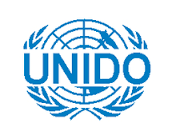United Nations Industrial Development Organization

Capacity building for clean industry, sustainable energy, and international trade standards.
Principal Office: International
The United Nations Industrial Development Organization (UNIDO) provides a platform in the UN system for public, private, and civil society organizations to discuss policy matters of industrial development, globalization, and sustainable environment.
UNIDO’s main programmatic areas are: Poverty Reduction through Productive Activities; Trade Capacity-Building; and Energy and Environment.
Grant Programs for Agriculture, Energy, Environment, Natural Resources
There are no regular grant-making programs or centers in UNIDO. However, UNIDO offers training opportunities through its Institute for Capacity Development.
Institute for Capacity Development. The Institute aims to strengthen UNIDO’s academic partnerships, networking efforts, and capacity-building and training activities.
Supported activities include executive training, university education, joint research, PhD research, and fellowships. Additionally, UNIDO supports summer courses, and in the future intends to sponsor contests and awards.
Subject areas in capacity building range across all of UNIDO’s program areas.
About the Institute for Capacity Development
APPLICATION: Grant seekers should monitor programs for available opportunities. Announcements usually include objectives, eligibility criteria, application dates, and how and when to apply.
Geographical Distribution of Grant Activities in Developing Countries
UNIDO’s member states include the following developing countries, classified according to the regional structure of the Terra Viva Grants Directory.
Southeast Asia and Pacific Islands: Cambodia, Fiji, Indonesia, Laos, Malaysia, Myanmar, Papua New Guinea, Philippines, Samoa, Thailand, Timor-Leste, Tonga, Tuvalu, Vanuatu, Vietnam
East Asia: China, Mongolia, North Korea
South Asia: Bangladesh, Bhutan, India, Maldives, Nepal, Pakistan, Sri Lanka
Eurasia and Central Asia: Afghanistan, Armenia, Azerbaijan, Georgia, Iran, Kazakhstan, Kyrgyzstan, Tajikistan, Turkey, Turkmenistan, Uzbekistan
Eastern Europe and Russia: Albania, Belarus, Bosnia and Herzegovina, Croatia, Macedonia, Moldova, Montenegro, Russia, Serbia, Ukraine
Middle East and North Africa: Algeria, Bahrain, Egypt, Iraq, Jordan, Kuwait, Lebanon, Libya, Morocco, Oman, Qatar, Saudi Arabia, Syria, Tunisia, United Arab Emirates, Yemen
Sub-Saharan Africa: Angola, Benin, Botswana, Burkina Faso, Burundi, Cameroon, Cape Verde, Central African Republic, Chad, Comoros, Congo, Cote d’Ivoire, Dem Rep of Congo, Djibouti, Equatorial Guinea, Eritrea, Ethiopia, Gabon, Gambia, Ghana, Guinea, Guinea-Bissau, Kenya, Lesotho, Liberia, Madagascar, Malawi, Mali, Mauritania, Mauritius, Mozambique, Namibia, Niger, Nigeria, Rwanda, Sao Tome and Principe, Senegal, Seychelles, Sierra Leone, Somalia, South Africa, Sudan, Swaziland, Tanzania, Togo, Uganda, Zambia, Zimbabwe
Latin America and Caribbean: Argentina, Bahamas, Barbados, Belize, Bolivia, Brazil, Chile, Colombia, Costa Rica, Cuba, Dominica, Dominican Republic, Ecuador, El Salvador, Grenada, Guatemala, Guyana, Haiti, Honduras, Jamaica, Mexico, Nicaragua, Panama, Paraguay, Peru, Saint Kitts and Nevis, Saint Lucia, Saint Vincent and Grenadines, Suriname, Trinidad and Tobago, Uruguay, Venezuela
UNIDO’s website is available in English, French, and Spanish
UNIDO is a relatively recent implementing agency of the Global Environment Facility.
UNIDO publishes a worldwide directory of its offices.
UNIDO’s Institute for Capacity Development offers contact information.
